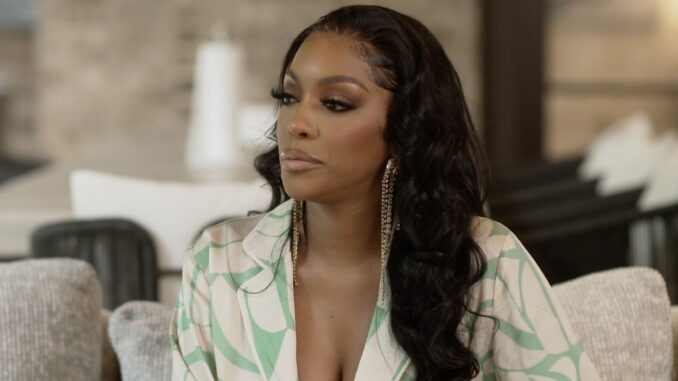
The low hum of the television often served as background noise in Claudia Jordan’s life, a familiar murmur of the entertainment industry she navigated with seasoned ease. But when the screen flickered to life with the latest installment of the Porsha and Shamea feud, a knowing glint would enter her eyes, and a sardonic curve would play on her lips. She wouldn’t necessarily lean forward, but her mental gears would certainly engage. For Claudia, this wasn’t just reality TV; it was a predictable, albeit endlessly fascinating, sociological study, and she had a front-row seat to the live experiment.
What Claudia really thinks isn’t whispered confessions or explosive reactions. It’s a quiet, analytical hum, a blend of amusement, exasperation, and a seasoned understanding of how these narratives are sculpted, both by the women themselves and the hungry beast of the production. Her brow, an eloquent arch of knowing cynicism, would tell you more than any dramatic sigh.
First, there’s the Porsha of it all. Claudia sees Porsha as a master of dramatic reinvention, a woman whose emotional volume knob is permanently cranked to eleven, especially when a camera is present. The feud with Shamea? A classic Porsha move, a well-worn script, slightly frayed at the edges. Claudia has witnessed the cyclical nature of Porsha’s “ride or die” declarations followed by spectacular public severings. She’d observe Porsha's outrage, her performative indignation, and think, "Oh, bless her heart, she's doing her thing." It's less a judgment of Porsha's character and more an appreciation for her consistent, almost archetypal, reality TV persona. Porsha needs a villain, or at least a dramatic foil, and if a former friend can fit that bill, so be it. Claudia understands the strategic utility of such a conflict, even if it’s wrapped in layers of genuine, if perhaps self-serving, emotion. It's not a real friendship, but a storyline, and Porsha, ever the lead actress in her own dramatic production, knows how to play her part.
Then there’s Shamea. Claudia, having navigated the treacherous waters of RHOA friendships herself, holds a subtle sympathy for Shamea, tinged with a dash of "you should have known better." Shamea was, in many ways, an auxiliary player, often defined by her proximity to Porsha. When Porsha turned on her, it was less a shocking betrayal for Claudia and more an inevitable consequence of operating within Porsha's orbit. Claudia would see Shamea's pain as genuine, her confusion as understandable. Shamea, she’d surmise, hadn't learned the unspoken rules of this particular game: don't bring a sincere heart to a manufactured drama fight. Shamea's authenticity, her raw hurt, contrasted sharply with Porsha's more polished, theatrical anger. Claudia likely views Shamea as a good person caught in a machine designed to chew up and spit out alliances. Shamea, a pawn trying to navigate a queen's game, eventually found her voice, and for that, Claudia would offer a silent, approving nod.
Beyond the immediate spectacle, Claudia sees the feud as a microcosm of RHOA itself – a stage where friendships are forged in fire and then often consumed by it. She understands the pressure cooker environment, where every perceived slight is amplified, every private conversation is subject to public dissection. She’d see it as a cautionary tale: the danger of allowing your personal relationships to become public currency. Having once been an outsider herself, observing these dynamics with a detached amusement, she knows the currency of conflict on a show like this. It keeps you relevant, it gives you a storyline, and it forces uncomfortable, but highly entertaining, confrontations.
So, when Porsha and Shamea clash, Claudia isn't aghast. She’s analyzing the angles, predicting the next scene. She’s appreciating the performance, acknowledging the pain, and ultimately, filing it away as another exhibit in her mental museum of reality television’s grand, ridiculous, and utterly human tapestry. Her real thoughts are a tapestry woven with threads of wit, cynicism, and an undeniable understanding of the show that both repels and fascinates. It's the quiet hum of a mind dissecting the chaos, finding patterns in the drama, and perhaps, with a subtle smirk, thanking the reality TV gods for the endless material.